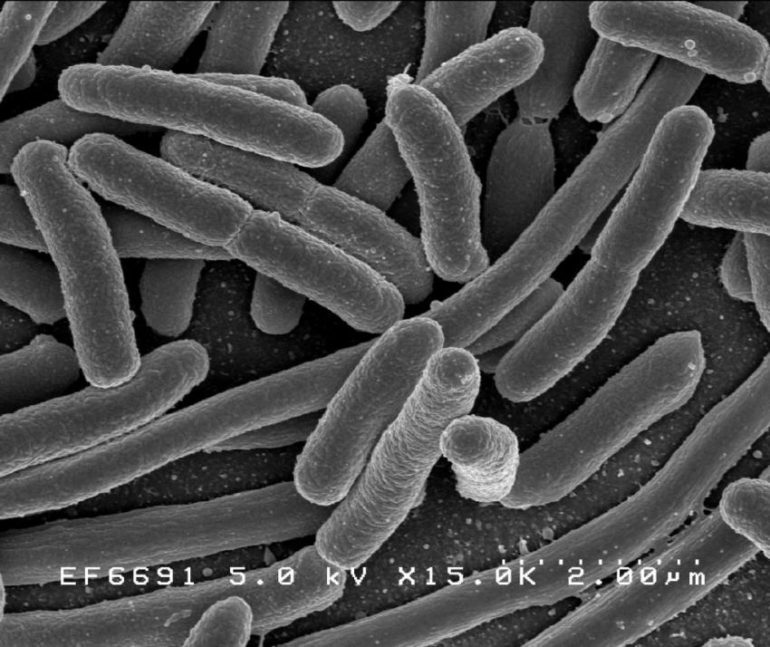International travelers are particularly vulnerable to virulent strains of drug-resistant bacteria—often picking up several different types during a trip through spending time in the company of other tourists, a new study reveals.
The global spread of intestinal multidrug resistant gram-negative (MDR-GN) bacteria poses a serious threat to human health worldwide, with MDR clones of E.coli and Klebsiella pneumoniae threatening more antibiotic resistant infections around the world.
Researchers monitored a group of European travelers visiting Lao People’s Democratic Republic for three weeks—analyzing daily returns of information and stool samples to build a comprehensive picture of the tourists’ gut health.
Bacterial strains colonized multiple travelers staying at the same hotels and spending time in each other’s company. In one exceptional instance, two participants staying in separate accommodation shared an identical strain after one took a shower in the other’s bathroom.
The international group of researchers, led by scientists at the Universities of Basel, Birmingham, Helsinki and Oslo, and the Wellcome Sanger Institute have published their findings in The Lancet Microbe.
Alan McNally, Professor in Microbial Evolutionary Genomics at the University of Birmingham and a senior author of the study, commented: “International travel is strongly linked to the spread of MDR-GN bacteria, with transmission highest in India and Southeast Asia, Africa and South America.
Travelers visiting these high-risk regions are at substantial risk of acquiring the bacteria.
“Colonization by MDR-GN bacteria is a highly dynamic process. We found constant ‘competition’ between circulating strains acquired by individual hosts and the travelers’ ‘native’ bacteria. Travelers can pick up the bacteria even during short visits and further spread the strains after returning home.”
The impact of travel on the global spread of multidrug-resistant E. coli is well documented—up to 80% of travelers returning from high-risk regions are colonized by MDR-GN bacteria, with colonization lasting up to a year. Previous traveler studies only analyzed pre- and post-travel samples, rather than the actual travel period.
Researchers found that, of the group of 20 European volunteers visiting Laos, 70% had been colonized at the end of the study. Daily sampling revealed that all participants had acquired extended-spectrum beta-lactamases (ESBL) at some time point during their overseas stay.
ESBL enzymes create resistance within the body to most beta-lactam antibiotics, including penicillins, cephalosporins, and aztreonam. Infections with ESBL-producing organisms have proved difficult to treat.
All but one participant acquired multiple strains of bacteria with 83 unique strains identified (53 E. coli, 10 Klebsiella, 20 other ESBL-GN species) and some of these strains being shared by as many as four subjects.
Study co-senior author Jukka Corander, Associate Faculty at the Wellcome Sanger Institute, UK, and professor at Faculty of Medicine at the University of Oslo commented: “Our study reveals the true scale and complexity at which drug-resistant bacteria colonize the intestinal tract during travel, demonstrating that it has been seriously underestimated previously.
“In addition, several of our participants lost some of their travel-acquired ESBL-GN strains while still abroad—indicating that previous studies solely employing pre- and post-travel sampling have under-reported the extent to which travelers are colonized by ESBL-GN.”
Even short travel can spread colistin-resistant bacteria
More information:
Intestinal multidrug-resistant bacteria contracted by visitors to a high-endemic setting: a prospective, daily, real-time sampling study, The Lancet Microbe, www.thelancet.com/journals/lan … (20)30224-X/fulltext
Provided by
University of Birmingham
Citation:
Global travellers vulnerable to drug-resistant bacteria: study (2021, February 23)
retrieved 23 February 2021
from https://medicalxpress.com/news/2021-02-global-vulnerable-drug-resistant-bacteria.html
This document is subject to copyright. Apart from any fair dealing for the purpose of private study or research, no
part may be reproduced without the written permission. The content is provided for information purposes only.



